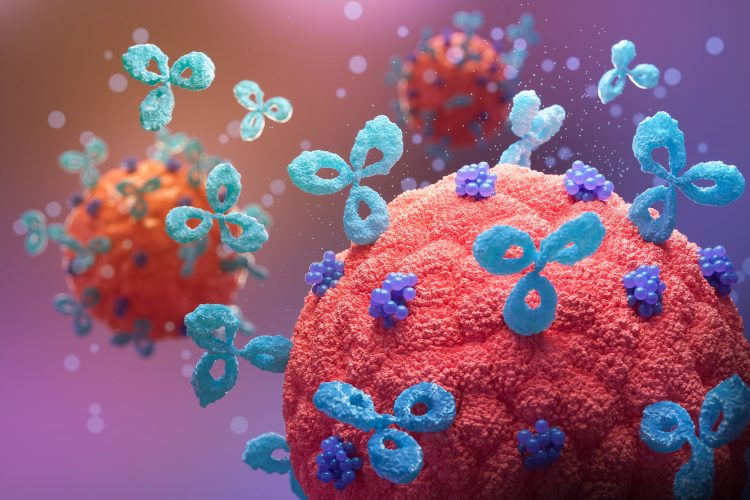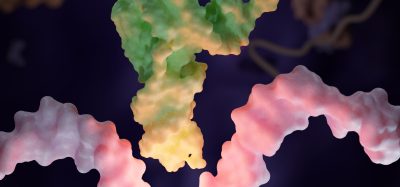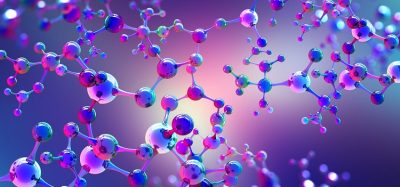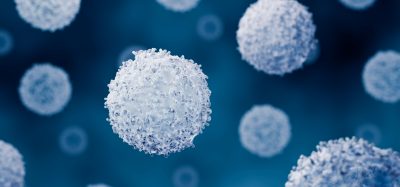New CAR T therapy targets solid tumours safely and effectively
Posted: 2 October 2025 | Drug Target Review | No comments yet
USC researchers have engineered CAR T cells to deliver a dual protein therapy that targets solid tumours – offering hope for cancers previously resistant to treatment.


Chimeric antigen receptor (CAR) T-cell therapy, which uses a patient’s own immune cells to fight cancer, has been an effective treatment for lymphoma and other blood cancers. Yet adapting the therapy to solid tumours, which account for roughly 90 percent of all cases – eg, prostate, breast, lung and ovarian cancers – is still a huge challenge.
Now, researchers at the USC Norris Comprehensive Cancer Center, in collaboration with City of Hope, have developed a new solution. Their study, published in Nature Biomedical Engineering, demonstrates that genetically engineered CAR T cells can deliver a targeted, potent attack on solid tumours while avoiding harmful side effects.
“By designing CAR T cells that release both IL-12 and a PD-L1 blocker as a fusion protein, we can make the treatment safe and also much more effective, even against tumours that usually resist CAR T-cell therapy,” said Dr Saul Priceman, Associate Professor in the Department of Medicine at the Keck School of Medicine of USC.
Targeted immune activation
The researchers engineered CAR T cells to produce a fusion of two proteins: interleukin 12 (IL-12) – a cytokine that boosts immune activity – and a programmed death-ligand 1 (PD-L1) blocker – an immune checkpoint inhibitor that prevents cancer cells from turning off the immune attack. In mouse models of prostate and ovarian cancer, the modified CAR T cells launched a localised assault, shrinking tumours without causing toxicity in other organs.
CAR T therapy works by altering the genes in a patient’s T cells to make them recognise and kill cancer.
CAR T therapy works by altering the genes in a patient’s T cells to make them recognise and kill cancer. Solid tumours, however, create a hostile environment that suppresses this T-cell activity. While IL-12 can reactivate T cells, it can be toxic when delivered broadly. The USC–City of Hope team overcame this by linking IL-12 to a PD-L1 blocker, which naturally accumulates near tumours where PD-L1 levels are high. This strategy ensured IL-12 was concentrated at the tumour site – enhancing efficacy while minimising side effects elsewhere.
“We believe this new strategy will provide a productive boost to current CAR T-cell therapies and can be applicable to multiple cancer types,” said Dr John P Murad, Assistant Professor of Research in the Department of Medicine at the Keck School of Medicine and the study’s first author.
Potential for broad impact
The study focused on prostate and ovarian cancers, but the researchers believe the approach could be relevant to other solid tumours – including gastrointestinal and brain cancers. Early testing is already underway in pancreatic cancer, with plans to expand to colorectal and brain tumours in the future.
No two cancers are the same, so each needs to be tested and validated as a potential clinical approach.
“No two cancers are the same, so each needs to be tested and validated as a potential clinical approach. But the new therapy could have broad applicability, because most solid tumours create a surrounding environment that weakens the immune system, which we are capitalising on with this strategy,” said Dr Priceman.
The team hopes to bring the approach to clinical trials within one to two years. Beyond CAR T cells, the strategy may also enhance other immune effector cells, such as tumour-infiltrating lymphocytes and T-cell receptor T cells, potentially opening new possibilities for treating solid tumours.
Related topics
Cancer research, Cell Therapy, Checkpoint receptors, Chimeric Antigen Receptors (CARs), Clinical Trials, Cytokines, Immuno-oncology, Immunotherapy, Therapeutics
Related conditions
blood cancer, Cancer, lymphoma
Related organisations
City of Hope, USC Norris Comprehensive Cancer Center







